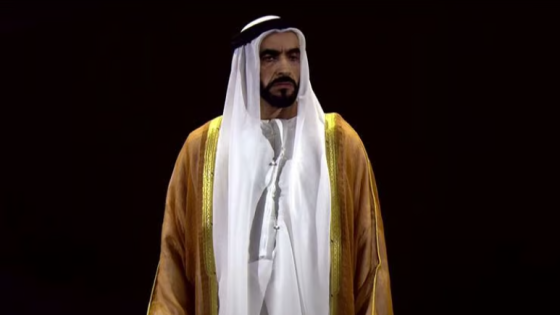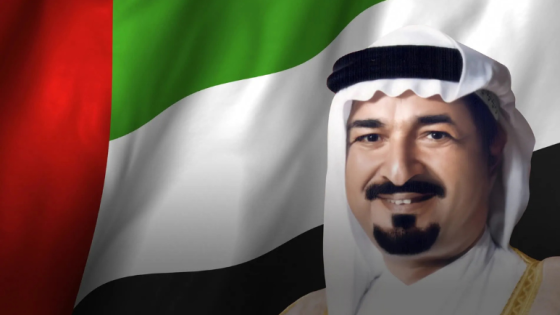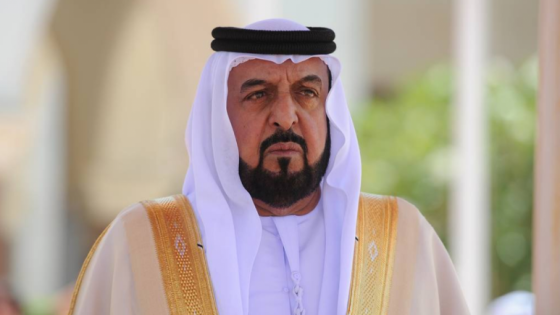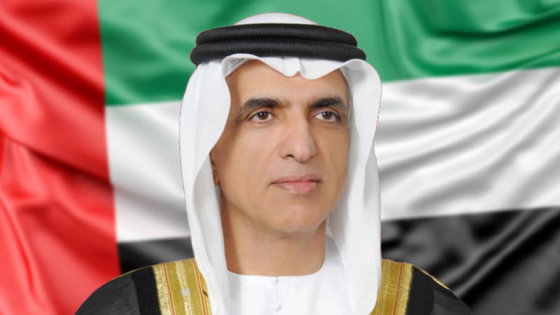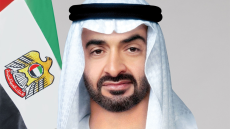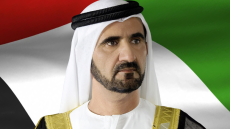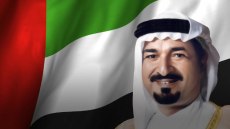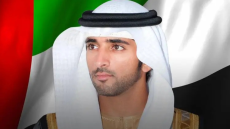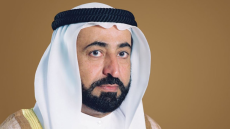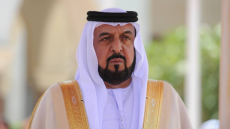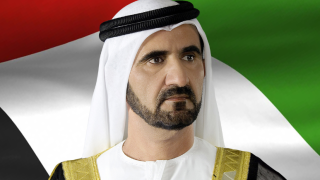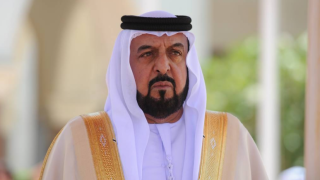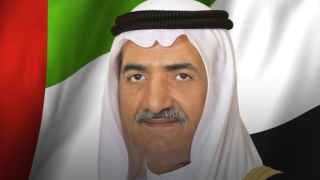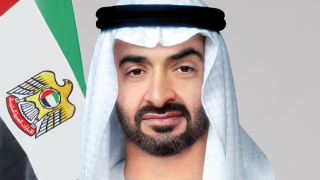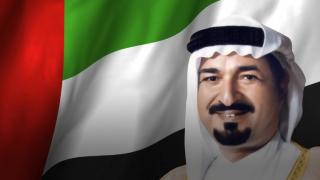Zayed bin Sultan Al Nahyan is celebrated as a transformative leader whose vision shaped the United Arab Emirates. Known affectionately as HH Sheikh Zayed, his highness implemented groundbreaking policies that fostered unity and development. As the late Sheikh Zayed bin Sultan Al Nahyan, he laid the foundation for a prosperous future, inspiring generations. This article explores the enduring legacy of Sheikh Zayed bin Sultan and his profound impact on the UAE.
The Visionary Leadership of Sheikh Zayed bin Sultan Al Nahyan
His Highness Sheikh Zayed bin Sultan Al Nahyan has been the President of the United Arab Emirates since the formation of the Federation on December 2, 1971, and has served as the Ruler of the Emirate of Abu Dhabi since 1966.
To truly understand the UAE, one must appreciate Sheikh Zayed’s life, characterized by his profound religious faith, visionary outlook, unwavering determination, and hard work. His generosity, both domestically and internationally, exemplifies his commitment to serving his people and fostering a better world.
Read more: The Unification Journey of the UAE
A Life of Faith and Vision
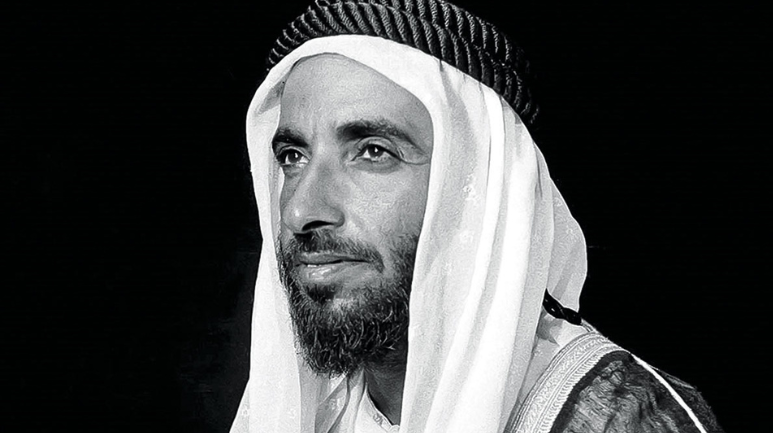
Sheikh Zayed was born around 1918 in Abu Dhabi as the youngest son of Sheikh Sultan bin Zayed Al Nahyan, who ruled Abu Dhabi from 1922 to 1926. At that time, the emirate was impoverished and underdeveloped, relying primarily on fishing, pearl diving, and basic agriculture in scattered inland oases.
Life was modest, even for the ruling family. Education was limited to basic reading and writing, along with religious instruction from local clerics. Transportation was primarily by camel or boat, and the harsh desert climate often posed significant survival challenges.
Read more: The Heritage of Pearl Diving in the UAE
The Quest for Knowledge and Passion for Falconry
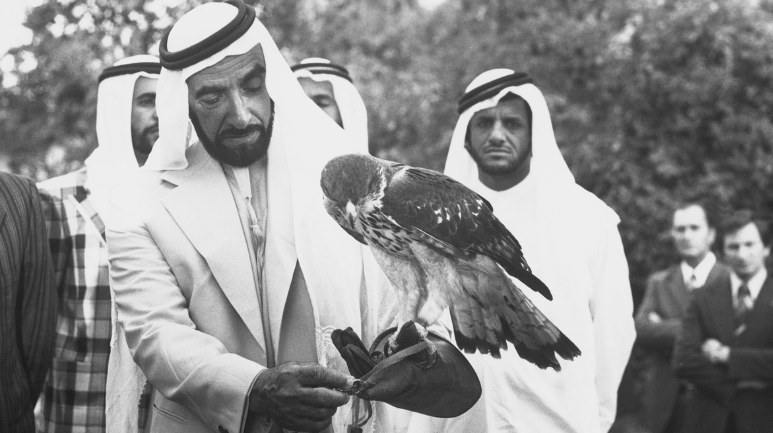
During the late 1920s and 1930s, Sheikh Zayed’s quest for knowledge led him to the desert, where he learned from Bedouin tribesmen about their lifestyle and environment. He fondly remembered his experiences in the desert and developed a passion for falconry, a sport that would remain important to him throughout his life.
Read more: Ottoman Contributions to UAE’s Development
Early Life and Challenges in Abu Dhabi
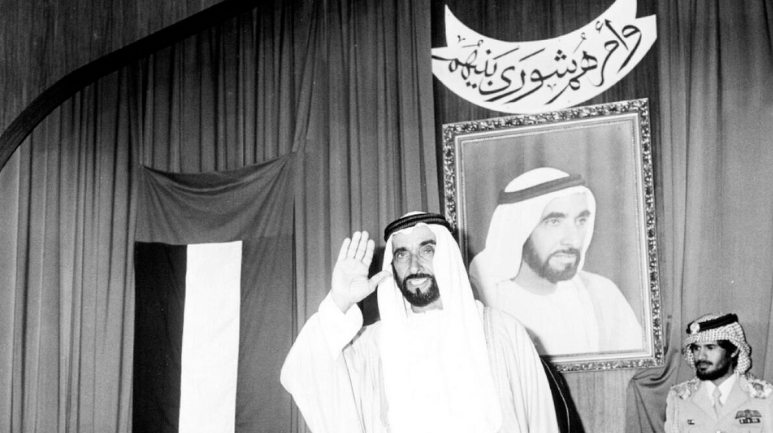
In 1946, Sheikh Zayed was appointed the Ruler’s Representative in the Eastern Region of Abu Dhabi, focusing on the oasis of Al Ain. This role required him to oversee six villages and the surrounding desert area. By the late 1940s and early 1950s, he had clearly defined his vision for the people of Al Ain, leading by example.
Read more: Life in the Pre-Islamic Era of the UAE
Administrative Roles and Vision for Al Ain
Despite limited government resources, Sheikh Zayed successfully advanced Al Ain’s development by establishing a basic administration, personally funding the emirate’s first modern school, and encouraging family and friends to support small-scale projects.
Read more: The History of the Trucial States in the UAE
Advancements in Al Ain: A Model of Progress
He reformed local water ownership rights to ensure fair distribution, promoting agricultural growth and revitalizing the oasis as a key market center. His urban planning efforts in Al Ain contributed to making the city one of the greenest in Arabia today.
Ascending to Rulership: Transforming Abu Dhabi
In August 1966, Sheikh Zayed ascended to the position of Ruler of Abu Dhabi, tasked with rapidly advancing the emirate. His experiences in Al Ain equipped him with valuable governance skills and a clear vision for progress. Following the export of the first cargo of Abu Dhabi crude oil in 1962, he was able to leverage oil revenues to benefit the populace, initiating an extensive construction program for schools, housing, hospitals, and roads.
Read more: British Treaties and Their Impact on the UAE
The Push for Federation in the Arabian Gulf
In 1968, the British announced their intention to withdraw from the Arabian Gulf by the end of 1971. Sheikh Zayed, alongside the late Ruler of Dubai, Sheikh Rashid bin Saeed Al Maktoum, took the initiative to advocate for a federation that would encompass not only the seven emirates of the Trucial States but also Qatar and Bahrain.
Founder of UAE: Establishing the United Arab Emirates
Ultimately, seven emirates followed Sheikh Zayed’s lead to establish the UAE, which officially appeared on the international stage on December 2, 1971. His enthusiasm for federation was instrumental in the UAE’s formation, and he garnered support through his emphasis on consensus and collaboration among fellow rulers.
Read more: The Arrival of Islam and Its Influence on the UAE
A Commitment to the People: Leadership Philosophy
Sheikh Zayed was elected as the first President of the UAE by his fellow rulers and was re-elected every five years. A cornerstone of his leadership philosophy was the belief that the nation’s resources should be utilized for the benefit of its people, including women, who greatly benefited from his vision for education, employment, and equality.
Read more: How Oil Discovery Transformed the UAE
Governance through Consensus and Consultation
In his governance, Sheikh Zayed drew upon the Arabian Bedouin traditions of consensus and consultation. This principle has long been practiced through the majlis (council), where community leaders host open discussions, allowing individuals to voice their opinions for consideration.
Read more: The Evolution of Traditional Music and Dance in the UAE
Formalizing Representation: The National Consultative Council
In 1970, recognizing Abu Dhabi’s rapid development, Sheikh Zayed formalized the consultation process by establishing the National Consultative Council, which included leaders from the main tribes. A similar institution, the Federal National Council, was created in 1971 for the entire UAE, serving as the nation’s parliament.
Read more: The Path to Modernization in the UAE
Commitment to Environmental Preservation
The preservation of the natural environment and wildlife was of utmost importance to Sheikh Zayed. He believed that the essence of the Emirati identity is partly shaped by the struggle to thrive in the challenging and arid local landscape. Throughout his life, he dedicated efforts to protect species such as the Arabian Oryx and the sand gazelle. In recognition of his contributions, the World Wildlife Fund awarded him the esteemed Gold Panda Award.
Read more: Traditional Legal Systems in the UAE
Opposition to Intolerance and Extremism
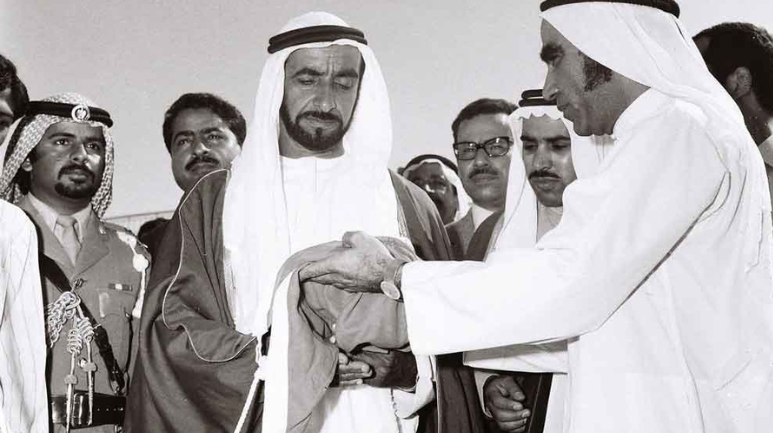
Sheikh Zayed was a staunch opponent of rigid ideologies and intolerance. In a 2002 interview, he stated, “Muslims stand against any person of Muslim faith who attempts to commit acts of terror against another human being. A terrorist is an enemy of both Islam and humanity, while a true Muslim is a friend to all and considers both fellow Muslims and non-Muslims as brothers. This is because Islam embodies mercy and tolerance.”
Read more: The UAE’s Strategic Role in the Silk Road
Promoting Consensus and Cooperation
His principles of consensus and tolerance extended beyond his personal beliefs. In the Arabian Gulf region and the wider Arab world, the UAE has actively sought to promote cooperation and resolve conflicts through peaceful dialogue and consensus-building.
Read more: Tribal Relations and Their Influence on UAE History
Active Role in International Peacekeeping
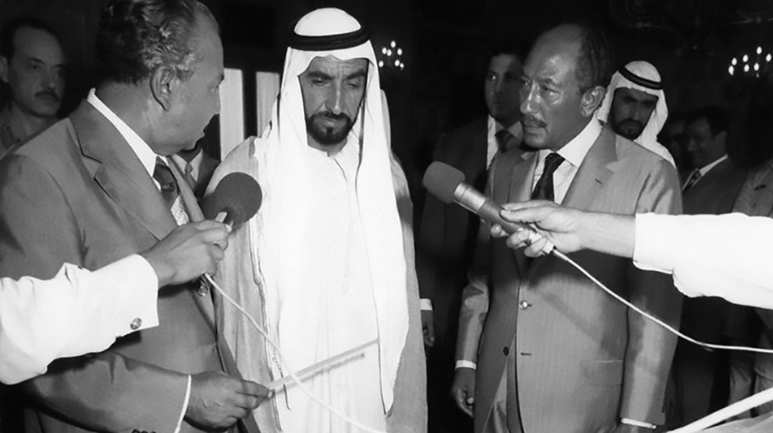
In the 1990s, Sheikh Zayed recognized that the UAE could take on a more proactive role in international peacekeeping efforts. The UAE Armed Forces participated in the Arab Deterrent Force, aimed at ending civil strife in Lebanon, and in UNISOM II, the United Nations peacekeeping and reconstruction mission in Somalia.
Read more: Exploring the Historical Forts and Castles of the UAE
Support for Global Humanitarian Efforts
In early 1999, Sheikh Zayed was among the first global leaders to support NATO’s decision to initiate an aerial campaign to compel Serbia to stop its genocidal actions against the people of Kosovo. From late 1999 to 2001, the UAE’s contingent in the UN’s KFOR peacekeeping force was the largest from any non-NATO country and the only one from an Arab or Muslim nation.
Read more: Transportation Through the Ages in the UAE
Legacy of Humanitarian Assistance
While advocating for the UAE to take on greater international responsibilities, Sheikh Zayed emphasized that the nation’s role should primarily focus on humanitarian relief and rehabilitation. In regions such as the Balkans, Iraq, and Afghanistan, the UAE’s policies reflected Sheikh Zayed’s desire to utilize the prosperity of his country to assist those in need.
Through organizations like the Zayed Charitable and Humanitarian Foundation and the Abu Dhabi Fund for Development—established by Sheikh Zayed before the UAE’s formation—alongside institutions like the Red Crescent Society, the UAE now plays a significant role in providing global relief and development assistance.
Read more: Preserving Traditional Crafts in the UAE
Sheikh Zayed’s Enduring Influence and Succession
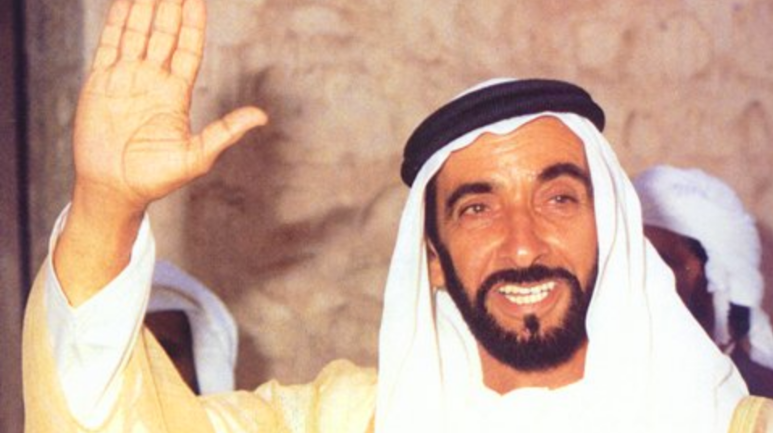
Sheikh Zayed passed away in 2004 at the age of 86, leaving behind a legacy as the Father of the Nation. His eldest son, His Highness Sheikh Khalifa bin Zayed Al Nahyan, succeeded him as President of the UAE and Ruler of Abu Dhabi.
The principles and philosophies he instilled in governance continue to be central to the state and its policies today. Following the death of his brother Sheikh Maktoum in 2006, His Highness Sheikh Mohammed bin Rashid Al Maktoum, Ruler of Dubai, was appointed Vice President of the Federation.
Highness Sheikh Zayed bin Sultan bin Khalifa Al Nahyan: A Commitment to Civic Life
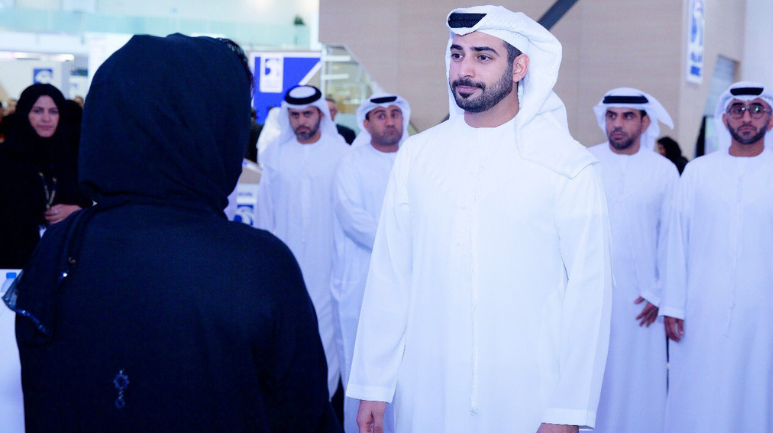
His Highness Sheikh Zayed bin Sultan bin Khalifa Al Nahyan, the grandson of the President of the United Arab Emirates, Sheikh Khalifa bin Zayed Al Nahyan, possesses a strong sense of responsibility toward enhancing the civic life of his nation.
Fostering Creativity and Cultural Enrichment
Through a variety of initiatives, he works to promote emerging creative voices and enrich the cultural landscape of the UAE. At just 32 years old, he has established himself as one of the leading art patrons both nationally and internationally, firmly committed to showcasing local and regional culture on a global scale.
Patronage of Prominent Cultural Institutions
Sheikh Zayed is a Patron of prestigious institutions such as the Centre Pompidou in Paris and the British Museum in London. As a passionate collector of modern and contemporary art from the Middle East and South Asia, he actively participates in their Middle Eastern acquisition committees.
Support for Emirati Artists and Art Initiatives
In collaboration with UAE Unlimited and independently, he has generously donated works by notable Emirati artists, including Mohammed Kazem, Mohammed Ibrahim Al Mansoori, and Ammar Al Attar, to both institutions. Additionally, Sheikh Zayed is a patron of the Sharjah Art Foundation.
Dedication to Sustainability and Humanitarian Work
Beyond his support for the arts, His Highness is deeply committed to global sustainability and humanitarian efforts, as well as the advancement of scientific research. He serves as the Chairman of Alliances for Global Sustainability and holds a position on the Board of the Make-A-Wish Foundation, UAE Chapter.
Founding UAE Unlimited
In 2015, Sheikh Zayed founded UAE Unlimited (formerly known as UAE Unlimited Arab Exploration), an open exhibition platform focused on promoting creative endeavors both within the UAE and internationally. Now in its sixth cycle, UAE Unlimited has begun to positively influence the cultural scene in the country and support the careers of emerging artists, poets, and writers.
Academic Background and Cultural Vision
Sheikh Zayed earned his Master of Arts with Honors in Middle East Studies and Modern History from the University of St. Andrews in Scotland.
“I aim to engage in the country’s cultural development actively and to foster greater awareness of its undeniable and diverse artistic wealth.”
Programs Supporting Emerging Artists
In line with this vision, the Stellar Programme was developed for emerging artists. It offers workshops on a wide range of topics led by industry professionals.
Leadership in Humanitarian Foundations
Sheikh Zayed also sits on the Board of the Make-A-Wish Foundation-UAE Chapter and serves as Chairman of both the Sultan bin Khalifa Al Nahyan Humanitarian and Scientific Foundation and the Board of Trustees for the Sultan bin Khalifa Thalassemia Award.
Read more: The Evolution of Currency in the UAE
Conclusion
Zayed bin Sultan Al Nahyan remains a monumental figure in the history of the United Arab Emirates, profoundly shaping its trajectory as President and ruler of Abu Dhabi. His ascent to leadership was marked by a bloodless coup that saw him emerge as the new Ruler of the Emirate, following his older brother Sheikh Shakhbut bin Sultan. Under Sheikh Zayed’s guidance, the UAE flourished, transforming from a collection of disparate tribes into a cohesive nation.
His commitment to development, education, and unity laid the groundwork for today’s prosperity. As the grandfather figure to the current generation, including his notable grandson, Sheikh Mohamed, his vision and values persist in guiding the nation’s progress. Ultimately, Sheikh Zayed’s legacy is a testament to his extraordinary leadership and enduring impact on Emirati identity and achievements.
